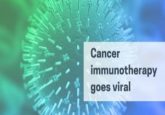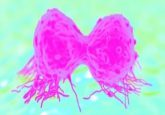The potential of intravenous immunoglobulins for cancer therapy: a road that is worth taking?

Much has been learned recently about the role of immunoglobulins as effector molecules of the adaptive immunity and as active elements in the maintenance of immune homeostasis. The increasing number of pathologies where intravenous immunoglobulins (IVIg) display a beneficial action illustrates their therapeutic relevance. Considering recent findings on the ability of IVIg to modulate macrophage polarization, herein we review evidences on the antitumoral activity of IVIg. Fragmentary and nonconclusive, available evidences are just suggestive of the potential of IVIg in antitumoral therapy, but encourage for the generation of additional evidences through well-designed clinical trials, and for additional studies to address the molecular effects of IVIg as a means to avoid the extrapolation of data gathered from animal models.
Intravenous Immunoglobulin (IVIg) is the therapeutical product of highly purified IgG obtained from the pooled plasma of several thousands of healthy human blood donors. In fact, the IgG subclass distribution in IVIg is similar to that normally found in human plasma. IVIg maintains intact IgG functions, contains a low amount of aggregates, and contains a huge diversity of antibody repertoire, a property that is critical for its replacement and immunomodulatory effects [1,2].
Click here to view the full article in Immunotherapy.




